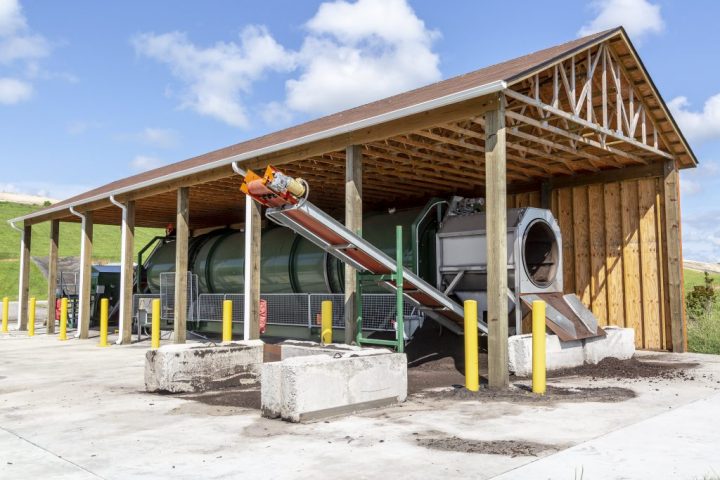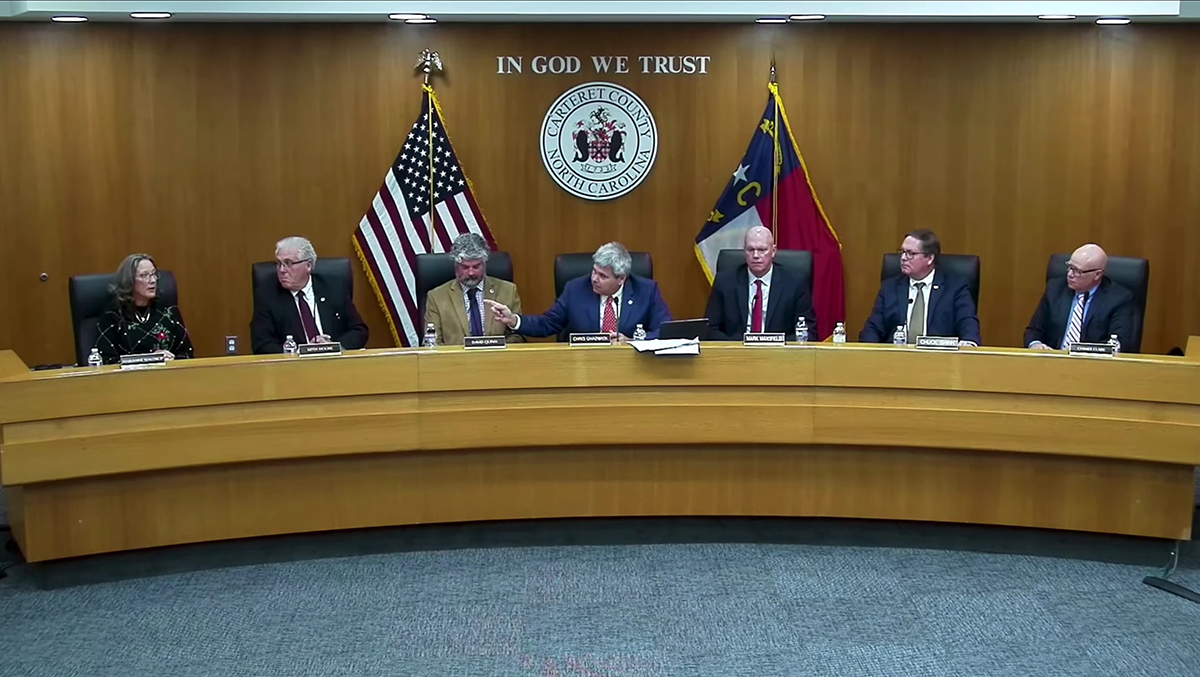
WILMINGTON — Biodegradable food packaging seems to offer the best of all worlds — convenience and an environmentally friendly waste product. However, recent studies have shown that compostable food containers, as well as paper plates and fast-food containers, often contain short-chain per- and polyfluoroalkyl substances, or PFAS, to repel water and grease.
Short-chain PFAS may pose significant environmental and health risks.
Supporter Spotlight
A study by Environmental Science & Technology Letters showed that PFAS are present in compost that includes food containers. Researchers found that seven facilities that accepted compostable food containers had PFAS concentrations from about 29 to 76 micrograms per kilogram of compost, while compost from facilities that didn’t accept food containers contained less than 8 micrograms of compost per kilogram of compost.

“The bad news is that PFAS are so prevalent in everything we do that it’s extremely difficult to have a lifestyle where you aren’t using something with these chemicals,” said Joe Suleyman, New Hanover County’s director of environmental management. “The grocery stores are full of food products that come in packaging that’s coated with this family of chemicals.”
The dangers that short-chain PFAS pose are multi-faceted. Even though short-chain PFAS stay in the body for a few days to a couple of months, as opposed to long-chain PFAS that stay in the body for years, we are exposed to them repeatedly. They’re used in food containers ranging from biodegradable food ware to convenience food packaging to hamburger wrappers and pizza boxes, and the accumulated effect adds up. Just as problematic is that short-chain PFAS never break down, even when composted, and they are extremely mobile. As a result, these substances leach into soil and water and end up in food crops, according to the report, Take Out Toxics: PFAS Chemicals in Food Packaging.
Furthermore, short-chain PFAS may be as harmful to our health as their ugly siblings, long-chain PFAS, which were banned in the U.S. in 2016 for their link to liver disease, thyroid dysfunction and several forms of cancer. Though scientists don’t know how short-chain PFAS affect human health, studies on this new generation of chemicals have found in laboratory tests that their effect on health resembles those caused by the older compounds, according to Take Out Toxics: PFAS Chemicals in Food Packaging.
Movement to ban PFAS in food packaging
The outcry against short-chain PFAS has been growing. In May, Rep. Debbie Dingell, D-Mich., introduced legislation to ban the use of toxic PFAS in food containers and cookware. The Keep Food Containers Safe from PFAS Act empowers the Food and Drug Administration to deem PFAS substances in any food containers or cookware unsafe and gives the FDA until 2022 to enforce this ban.
Supporter Spotlight
The industry, too, is working to limit short-chain PFAS in compostable products. The Biodegradable Products Institute, or BPI, which certifies compostable products and packaging, has put measures in place to restrict, and then eliminate, the use of fluorinated chemicals in products and packaging it certifies as compostable. BPI approved 100 parts per million total fluorine limit in its certification and said BPI certified compostable products and packaging that don’t meet the 100 ppm total fluorine requirement must be phased out of the marketplace by the end of 2019.
PFAS-free products available
Fortunately, food containers that don’t contain PFAs are available. Those composed of steam-pressed bamboo or palm leaves break down completely when composted, according to Suleyman.
Outer Vanguard, whose products are sold by the Wilmington Compost Co., also has a line of PFAS-free food ware. Made from sugarcane, these molded fiber plates and containers can be used in microwaves, keep food hot or cold and are water and grease resistant.
“Outer Vanguard is the only compostable product line that doesn’t contain a fluorinated compound,” said Riley Alber, founder of the Wilmington Compost Co. “It’s the first and only product line that meets new regulation standards.”
New Hanover County’s composting initiatives
New Hanover County’s food waste composting program, begun in November 2017, accepts food containers that have been BPI-certified compostable. With its “in-vessel” system, all composting is done in a sealed vessel at extremely high temperatures. However, the system doesn’t get hot enough to break down PFAS, which are made to withstand high temperatures, according to Suleyman.
That’s one of the reasons why New Hanover County doesn’t test for PFAS, even though it regularly sends its compost to state department of agriculture laboratories to ensure it’s a good product. Other deterrents to testing for these chemicals is their sheer numbers, the cost and difficulty finding test facilities.
“The concern for us is do we take this finished compost, send it off, and have it tested for PFAS, and if so which ones, because there are literally hundreds of them,” Suleyman said. “There’re very few labs that have the equipment or certification to do that sort of testing, and it’s very expensive.”
Suleyman said he would be surprised if there weren’t any PFAS in New Hanover County’s compost, but he expects the number would be low because 80 percent of the system’s compost is made up of preconsumer food waste or kitchen scraps.
New Hanover County has taken steps to ensure its landfill wastewater doesn’t contain undesirable chemicals that could leach into the ground and reach the Cape Fear River. This year the county tested wastewater that collected on the bottom of the landfill for 30 to 35 different compounds in the PFAS family. Wastewater that was treated with the system’s double reverse osmosis system showed no detectable levels of PFAS, compared with its untreated wastewater, which had 13,000 parts of PFAS chemicals per trillion, or 0.0000013%, said Suleyman.
“We were immensely relieved that the system did as advertised and literally removes everything,” Suleyman said.







